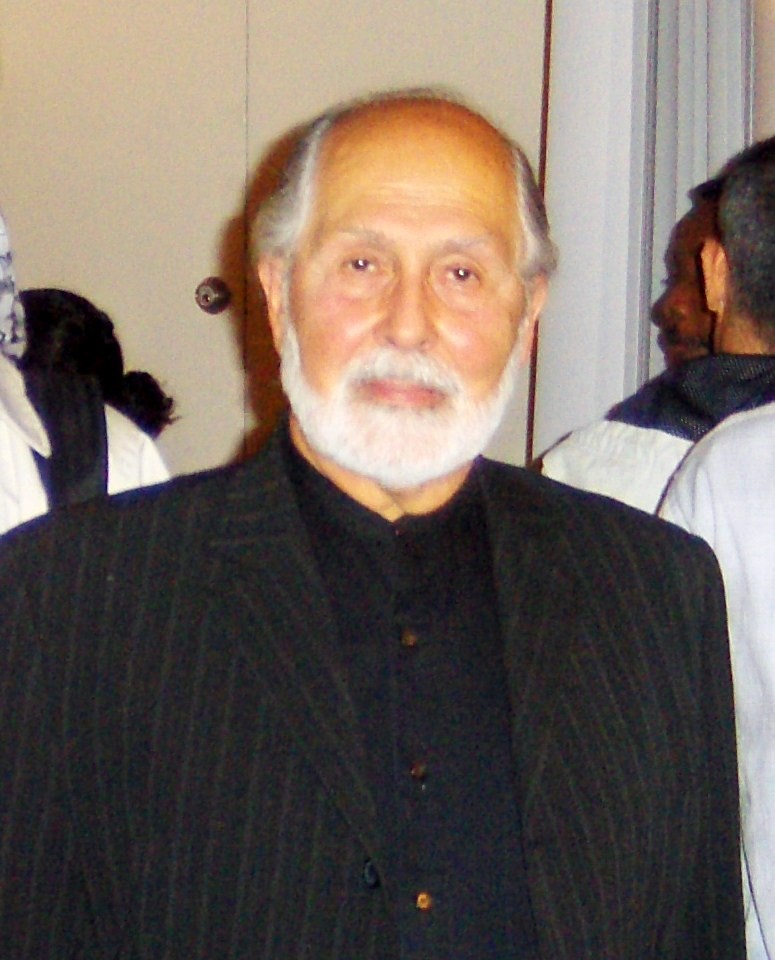Nasr, Seyyed Hossein
Enlarge text Shrink text- LCN ; note: b. 1933
- Three Muslim sages ... 1964.
- Malushkov, V. Poiski puteĭ reformat︠s︡ii v islame, 1991:p. 126 (Seida Khoseĭna Nasra; S. Kh. Nasra)
- Info. converted from 678, 2012-10-02(b. 1933)
- Islami dhe brenga e ... 2000:t.p. (Sejjid Husein Nasr)
- Dalīl al-shābb al-muslim fi al-ʻālam al-ḥadīth, 2004:t.p. (al-Duktūr al-Sayyid Ḥusayn Naṣr) p. 4 of cover (b. 1933 in Tahran; Bakālūriyūs al-Fīziyāʻ wa-al-Riyāḍiyāt min MIT [Cambridge, Mass.]; Master's degree and PhD from Harvard)
- al-Tasāmuḥ laysa minnah aw hibah, 2006:t.p. (Ḥusayn Naṣr) p. 127 (D. Sayyid Ḥusayn Naṣr, mufakkir wa-ustādh jāmiʻī)
- Sayyid Ḥusayn Naṣr, dilbākhtah-yi maʻnavīyat, 2004 or 2005:t.p. verso (Iranian CIP data: Naṣr, Ḥusayn; b. 1312 [1933]) p. 155 (S. H. Nasr)
Seyyed Hossein Nasr (; Persian: سید حسین نصر; born April 7, 1933) is an Iranian-American academic, philosopher, theologian, and Islamic scholar. He is University Professor of Islamic studies at George Washington University. Born in Tehran, Nasr completed his education in the Imperial State of Iran and the United States, earning a B.A. in physics from Massachusetts Institute of Technology, a M.A. in geology and geophysics, and a doctorate in the history of science from Harvard University. He returned to his homeland in 1958, turning down teaching positions at MIT and Harvard, and was appointed a professor of philosophy and Islamic sciences at Tehran University. He held various academic positions in Iran, including vice-chancellor at Tehran University and president of Aryamehr University, and established the Imperial Iranian Academy of Philosophy at the request of Empress Farah Pahlavi, which soon became one of the most prominent centers of philosophical activity in the Islamic world. During his time in Iran, he studied with several traditional masters of Islamic philosophy and sciences. In 1979, the Islamic Revolution in Iran forced him to exile with his family to the United States, where he has lived and taught Islamic sciences and philosophy ever since. He has been an active representative of the Islamic philosophical tradition and the perennialist school of thought. Nasr's works offer a critique of modern worldviews as well as a defense of Islamic and perennialist doctrines and principles. Central to his argument is the claim that knowledge has become desacralized in the modern period, meaning that it has become severed from its divine source – God or the Ultimate Reality – which calls for its resacralization through the utilization of sacred traditions and sacred science. Although Islam and Sufism are major influences on his writings, his perennialist approach inquires into the essence of all orthodox religions, regardless of their formal particularities. His environmental philosophy is expressed in terms of Islamic environmentalism and resacralization of nature. He is the author of over fifty books and more than five hundred articles.
Read more on Wikipedia >
 Personality
Personality





